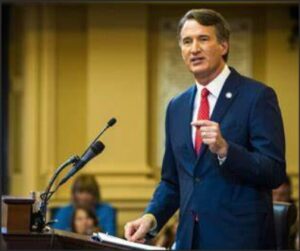
By Steve Haner
After much political theater, the Virginia General Assembly and Governor Glenn Youngkin (R) have now compromised on a $188 billion state budget based simply on the revenue projected from current tax law, with neither tax hikes nor tax reductions. Making those revenue projections slightly more optimistic eased the path.
With both sides backing off their desire to change the tax rules, it became clear there was less controversy over how to spend the state’s money in the new biennial budget from July 2024 to June 2026. The top shared priorities of legislators in both parties include education, public employee salaries and benefits, transportation, mental health services, and capital improvements. Medicaid is also a huge budget growth driver which the Assembly really does not control.
The Democrats in the majority in both chambers will celebrate that the plan achieves the spending they included in the budget they passed in March. Youngkin will celebrate that it did so without either the sales tax or carbon tax provisions that budget included. His success looks even more impressive when you recall the two other major tax hikes Democrats approved and he vetoed this year, one to impose a massive payroll tax and the other to allow localities to hike the general sales tax.
With a slight hint of sour grapes, a budget summary from the House Appropriations Committee opens with: “The adoption of the digital economy modernization was not driven by a systematic look at Virginia’s tax structure.” That is a euphemism for the expansion of the state’s sales tax to digital transactions, which just a few weeks ago was deemed by Democrats to be vital to the Commonwealth’s future.
The idea is hardly dead. One provision in this final budget, which was not included in previous versions, directs a 12-member legislative study committee to revisit the digital tax. It is also directed to review “existing sales and use tax exemptions” and evaluate “efforts to increase the progressivity of the income tax.” The goal is a tax package with some actual consensus behind it to consider in 2025.
There is no effort in the document to rationalize the Democrats’ decision to abandon their push to return Virginia to the Regional Greenhouse Gas Initiative, which imposes a carbon tax on electricity. Presumably, as with the digital sales tax, including that was a deal killer and veto magnet for Governor Youngkin.
More telling is this: Democrats did not apply any of the additional “found” revenue used to balance the budget to cover the existing programs funded by RGGI tax money. Perhaps they are not as high among their priorities as they claim, bound to infuriate those enriched by RGGI dollars. RGGI has always been more about money than any climate concerns.
What remains in the budget is still a massive spending increase over previous years, fueled in large part by inflation and by the lingering residue of the federal pandemic spending explosion. Both the 2022 and 2023 General Assemblies approved bipartisan tax reductions, mainly by raising the standard deduction on the income tax. Tax revenue has continued to grow.
When the Assembly adopted a similar budget two years ago, it assumed general fund revenue (after the tax reductions) of just under $25 billion for Fiscal Year 2023. The projection for general funds in Fiscal Year 2026 is now $30.3 billion, a 22% increase in three years.
Despite that growth, the general fund (income and sales taxes) continues to be a shrinking percentage of the overall state budget. The non-general fund portion – federal funds, transportation taxes and fees, college tuition and fees – is now almost two-thirds of the total. All take additional dollars out of people’s pockets because of inflation, and all may continue to grow faster than even this budget assumes.
Perhaps by the time of next year’s budget amendments, and certainly in the two-year budget developed after the 2025 election, the bottom line will be over $200 billion. And that budget summary document written by the Democrats on the money committee predicts “additional funding could be needed … to expand upon current initiatives and revamp the K-12 funding system.”
To their credit, Democrats have now laid out a legislative pathway to give all concerned a chance to be heard. Previous tax reviews have sputtered out and produced no changes, but this one might prove energetic. When major changes have happened, they result because somebody – usually a governor, but it can be legislators – has done the hard work of building consensus.
Some version of the digital sales tax expansion is in Virginia’s future, as more of the economy moves online. Many, but not all, other states have adopted some version of this tax. Most, however, have been careful about the taxes they have imposed on digital business transactions. What the Democrats were recently pushing was overly broad in its application, broad enough to raise concerns it would make Virginia uncompetitive.
It will be easier to convince Virginians to accept the new digital taxes if they are coupled with some level of income tax reduction, which is how Governor Youngkin sought to proceed in his original budget proposal. The Thomas Jefferson Institute’s top priority remains indexing the tax code to inflation, so that brackets and deductions automatically rise with the cost of living. That would check the box of making the tax more progressive.
Even if this new legislative effort at consensus fails to produce a successful package of tax changes for the 2025 session, the issue will become a central debate in the 2025 election season. This is appropriate, as voters should ultimately decide if taxes are too low, too high, or just right.
First published today by the Thomas Jefferson Institute for Public Policy.

Leave a Reply
You must be logged in to post a comment.